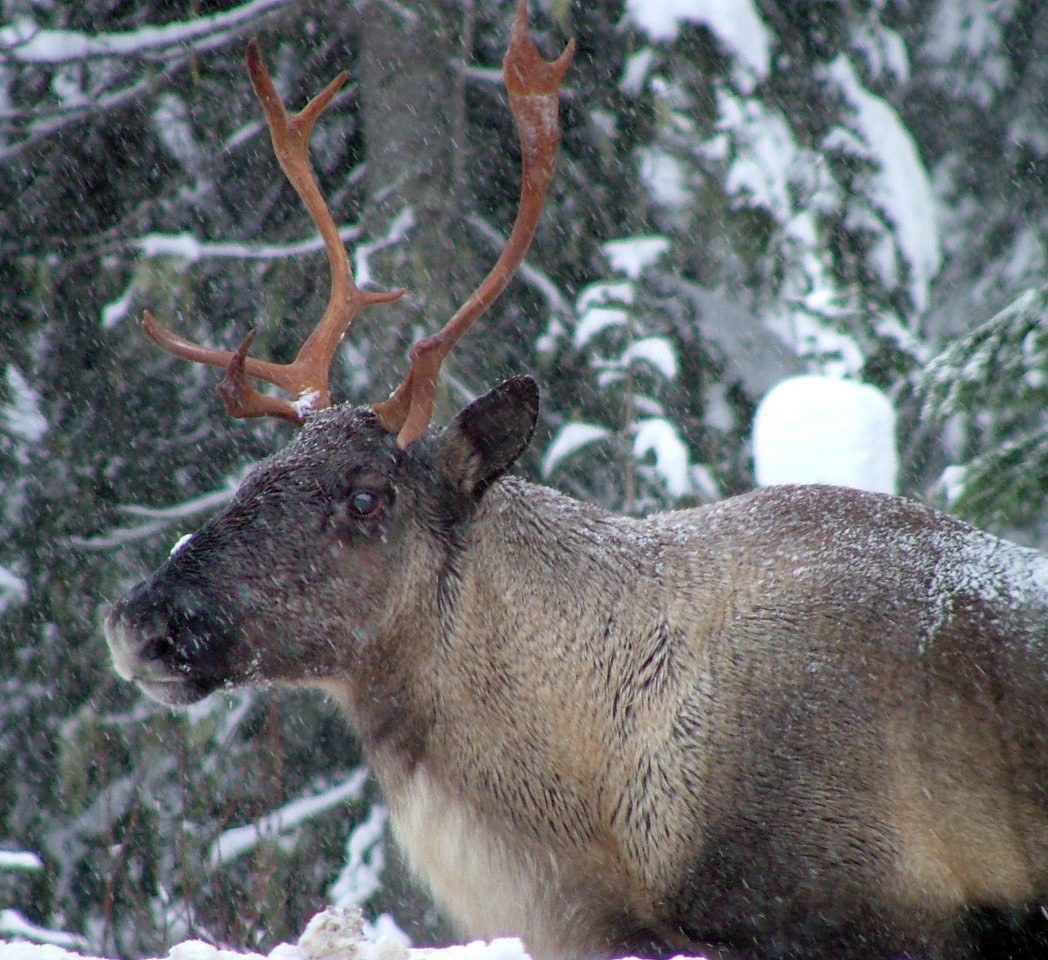The Alberta Wilderness Association is calling on Parks Canada to take steps to help the caribou population in Jasper National Park after a post on the government agency’s website said the Maligne caribou herd is now considered locally extinct.

“The die-off of Jasper’s entire Maligne caribou population is a tragic, predictable result of decades-long habitat and wildlife errors, reinforced in the last decisive decade by Parks Canada still catering to the recreation desires of a few above the habitat needs of endangered wildlife,” Carolyn Campbell, a conservation specialist with the AWA, said in a news release issued last week.
“Parks Canada must not let the remaining magnificent caribou under its care in Jasper be lost to future generations of Canadians.”
READ MORE: Vanishing species: Caribou fighting for their lives
On its website, Parks Canada says the Maligne herd has not been observed since 2018 and notes two of the park’s three other herds are facing serious challenges.
“The Tonquin herd is estimated to have 45 caribou and the Brazeau herd to have fewer than 15 caribou,” the website says. “The Tonquin and Brazeau herds do not have enough female caribou (10 or fewer in each herd) to be able to grow the herds.
“The À La Pêche herd is a partially migratory herd of about 150 animals on Jasper’s northern boundary that is primarily managed and monitored by the province of Alberta. Some animals in the herd stay in Jasper National Park year-round, some stay in the foothills of Alberta’s Rocky Mountains, and some migrate back and forth.”
Global News has reached out to Parks Canada via email for a statement about the loss of the Maligne herd.
- Enter at your own risk: New home security camera aims paintballs at intruders
- High benzene levels detected near Ontario First Nation for weeks, residents report sickness
- Beijing orders Apple to pull WhatsApp, Threads from its China app store
- Boston Dynamics unveils ‘creepy’ new fully electric humanoid robot
READ MORE: Vanishing species: Caribou conservation plan divides community
In its news release, the AWA said it wants Parks Canada “to prevent the extirpation of Jasper’s Tonquin and Brazeau caribou and to manage Maligne range access for eventual caribou reintroduction there.”
“AWA requests that Parks Canada urgently and transparently consider an emergency population augmentation program for Tonquin and Brazeau caribou,” the non-profit said.
“AWA also urges Parks Canada to retain hard-won winter access limits in the Maligne range and consider further measures in Tonquin and Brazeau habitat to support caribou recovery.”
READ MORE: B.C., Ottawa, First Nations reach deal to protect caribou in province
The AWA said caribou winter ranges along Alberta’s mountains have been disrupted over several decades by roads, dams, mines and other industry activity.
“Many caribou died off or stopped migrating, remaining inside national parks. Even though winter conditions were poorer than what they were adapted to, they probably survived far longer than they would have without the parks.”
According to Parks Canada, caribou have been wandering through Jasper National Park for centuries.
“They rely on the wide-ranging and undisturbed habitat found in these mountains and forests,” the agency says on its website. “Caribou eat the lichens that carpet snow-covered slopes during long, cold, Rocky Mountain winters.
“These creatures are an indicator species, which means they reveal a lot about the health of the alpine and forest ecosystems where they live. They are also an umbrella species, which means that by protecting caribou, we also protect many other species that have the same habitat needs as caribou.”
READ MORE: UBC study done in Alberta suggests caribou habitat restoration may be ineffective in the short term
Parks Canada said the Jasper caribou are part of “a subset of woodland caribou herds called Southern Mountain caribou.”
“Many of these herds have been getting smaller over the last several decades,” the agency says on its website.
According to Parks Canada, caribou in the park face a number of threats, including a shift in predator-prey dynamics, human disturbance, habitat loss and threats posed by herds having diminished populations.
The AWA says it believes the encouragement of what it calls an “artificially high elk population” led to an increase in wolf activity in the park, which hurt the caribou population. The organization also says it believes decisions made about roads, ski hills and trails have contributed to the problems currently facing caribou populations.
Watch below: Some Global News videos about Canada’s caribou population.











Comments